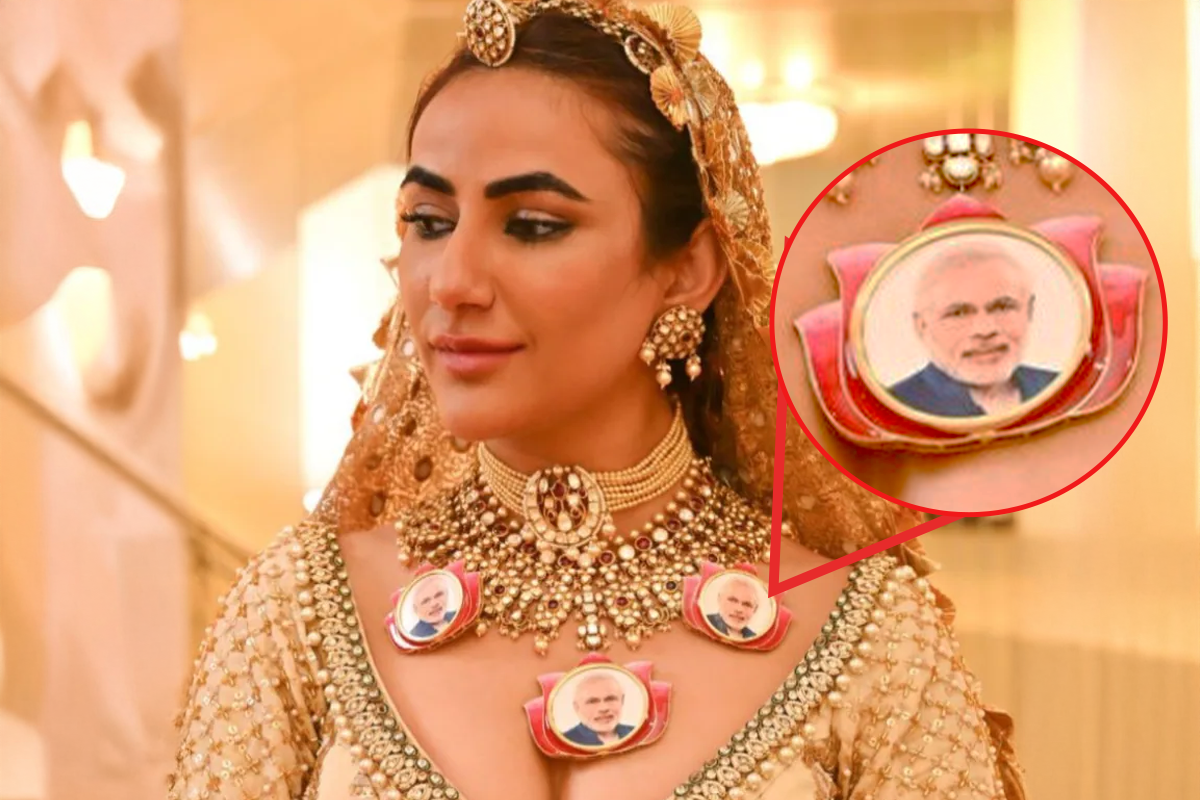Islamabad, 22 May, 2025: Ruchi Gujjar, a relatively unfamiliar face in international circles, has become an unlikely internet sensation after her extravagant appearance at the Cannes Film Festival but not for the reasons one might expect.
Her striking outfit, paired with an even more bewildering choice of accessories, has ignited intense debate online and captured global attention.
Ruchi Gujjar, an Indian model and aspiring actor, graced the Cannes red carpet in an ensemble more suited to a bridal ceremony than a global film event.
READ MORE: Cannes Film Festival Top Prize: Who Will Win?
Draped in a heavily embroidered golden lehenga adorned with traditional gota work, mirror detailing, and eye-catching kundan jewellery, she also wore a dupatta draped modestly over her head.
The outfit, although rich in craftsmanship, seemed oddly placed amidst the high-fashion couture Cannes is known for.
But it wasn’t the attire alone that stirred reactions it was the jewellery that became the centerpiece of conversation.
The standout element of Ruchi Gujjar’s outfit was a custom-made necklace featuring multiple lockets showcasing portraits of Indian Prime Minister Narendra Modi.
Each locket, designed in lotus motifs and surrounded by pearls, bore the leader’s likeness placed prominently across her neckline.
Observers noted that such an accessory, while certainly bold, leaned heavily into symbolism. Some interpreted it as a gesture of unfiltered patriotism, while others saw it as an over-the-top display that veered into parody.
On social media, reactions ranged from amusement to outright cringe, with many questioning the intent behind blending political idolisation with personal fashion.
The internet was quick to dissect the appearance, with many Indians expressing discomfort and secondhand embarrassment.
READ MORE: Mahira Khan was Targeted With an Unidentified Object Thrown During the Pakistan Literature Festival
Critics highlighted that while fashion can be a form of expression, merging political figures into jewellery on an international stage came off as excessive and tone-deaf.
Commentators compared the moment to similar political fashion expressions in South Asia, yet emphasised that Gujjar’s display lacked subtlety or cultural resonance.
In the end, what might have been intended as a proud statement of national identity became a global spectacle one that placed Ruchi Gujjar under an unforgiving spotlight, for reasons far removed from her acting career.









